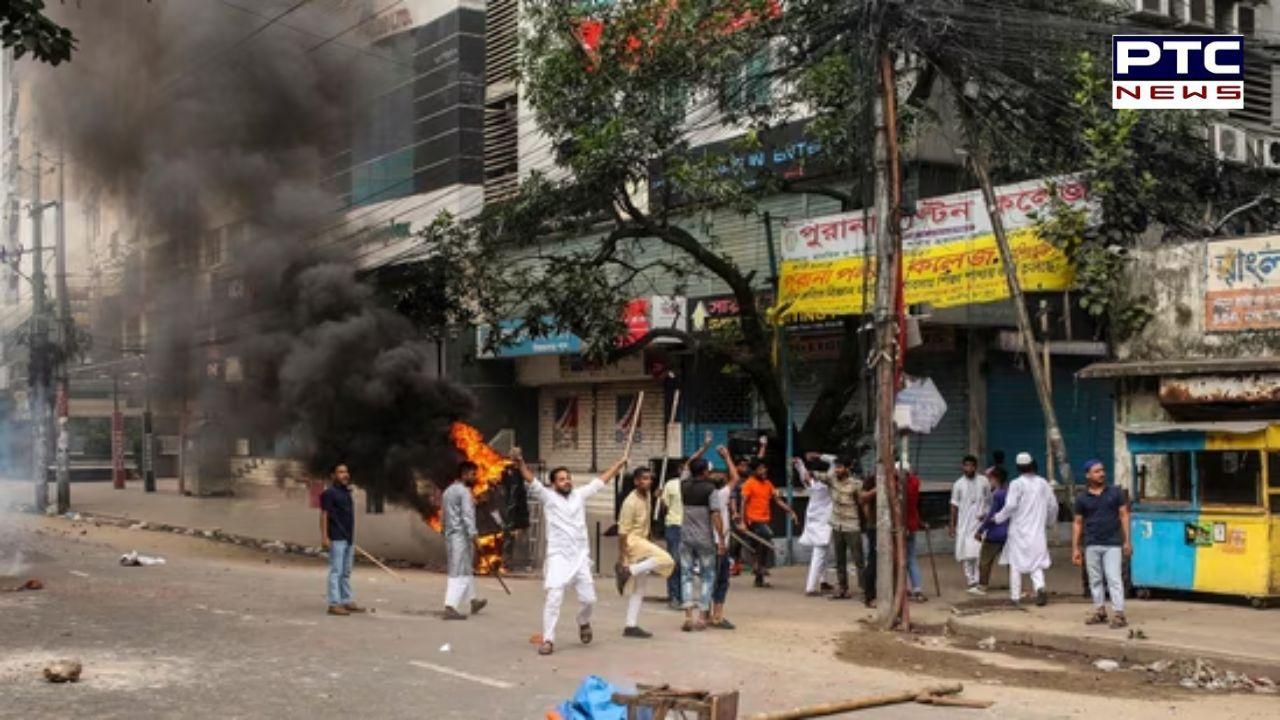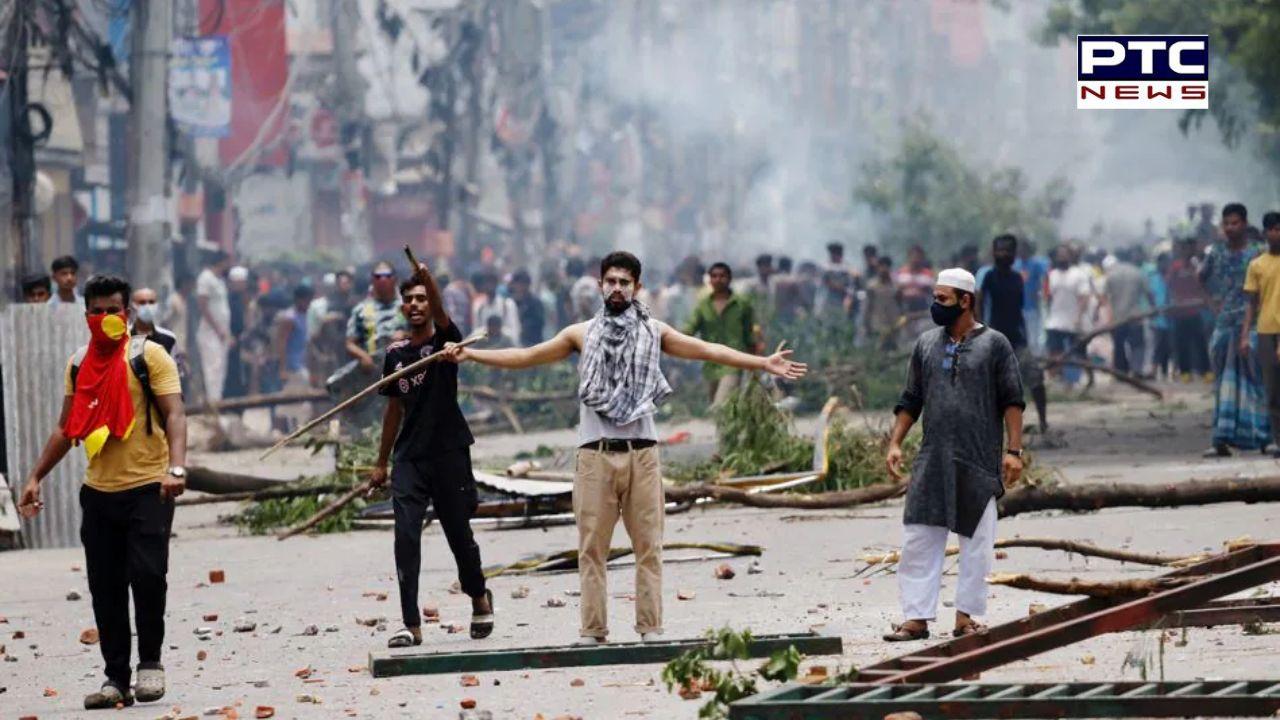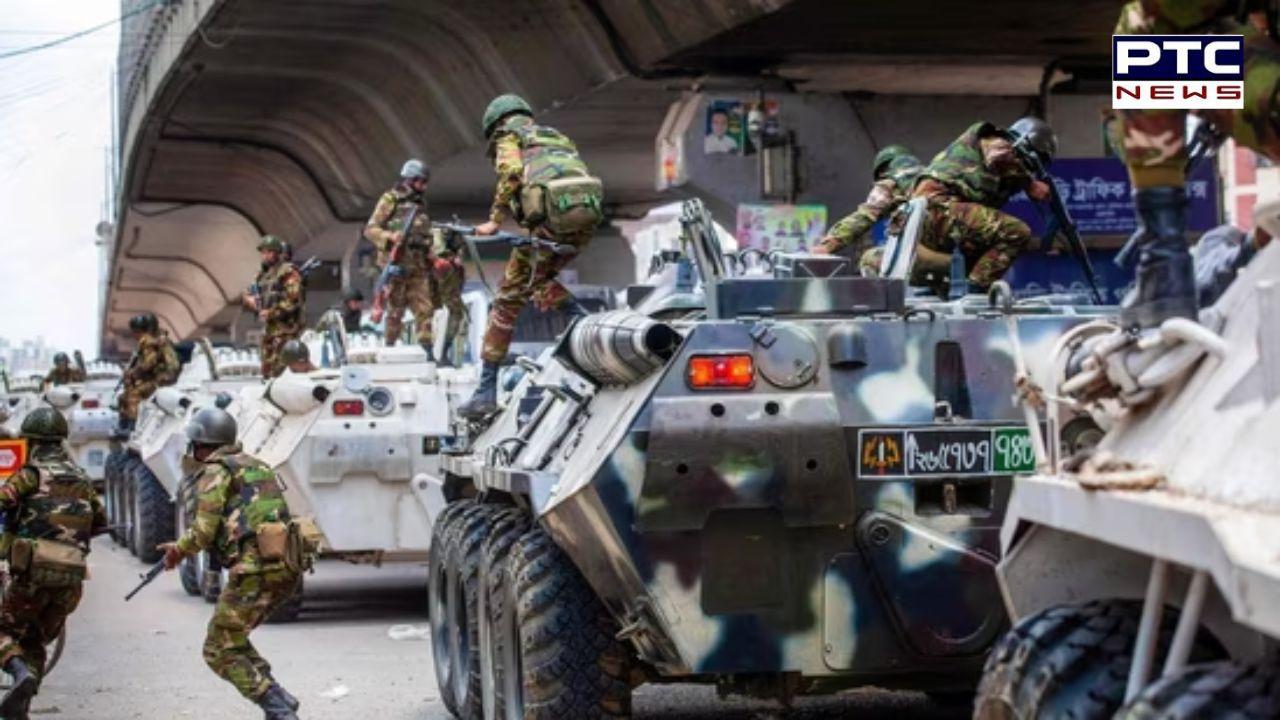Explained | Who were the razakars and why are they back in Bangladeshs discourse?
When Bangladesh's prime minister, Sheikh Hasina, called the protesters "Razakars," things took a bad turn.

PTC News Desk: In Bangladesh, confrontations between police and university students over reservations in government jobs have resulted in at least 131 deaths.
The Bangladeshi government, led by Sheikh Hasina, has responded to the widespread and widespread violence by enacting strict security measures like a statewide curfew, deploying the Army, and blocking internet access. Additionally, authorities have mandated that police and military personnel "shoot on sight."

The majority-student demonstrators have been staging protests in Dhaka and other towns against the public sector job reservation system, which includes a quota for the kin of war heroes who fought for the nation's independence from Pakistan in 1971.
They contend that because Prime Minister Sheikh Hasina's Awami League party spearheaded the independence fight, the system favors supporters of Hasina and is discriminatory. They want a merit-based system to take its place.
Prime Minister of Bangladesh Sheikh Hasina, however, has defended the quota system, stating that regardless of their party membership, veterans should be treated with the utmost respect for their services to the war.
After Hasina called the protesters "Razakars" during a conference, the protest took a bad turn.

"If not the freedom fighters' grandchildren, then who will receive quota benefits?" she questioned. The 'Razakars'' grandchildren? That's the question I have. I have a question for the country's citizens. I'm unable to stop the demonstrators if they don't comply. They are free to carry on with their demonstration. The law will dispense with protestors who harm property or assault law enforcement officials. We are powerless to assist.
The statement infuriated the student protestors, who intensified their demonstration with the battle cry, "Tui ke? Ami ke? Razakar, Razakar! (Who are you? Me? Who am I?) "Rayakar, Razakar!"
Also Read: 3 dead as boulders strike Kedarnath hiking route amid heavy rain in Uttarakhand
Who were the Razakars?
During the 1971 Bangladesh Liberation War, a paramilitary group known as the "Razakars" operated in East Pakistan, which is now Bangladesh.
They were mainly made up of local allies who were against the independence movement and were formed by the Pakistan Army.
The Indian Express was informed by Dr. Muntasir Mamoon, Bangabandhu Chair at Chittagong University in Bangladesh, that the Razakars have their roots in the post-independence princely state of Hyderabad. The Nawab of Hyderabad employed this paramilitary group to thwart India's post-1947 integration. Qazim Rizvi, the head of the Razakars, emigrated to Pakistan after India beat them in Operation Polo.
Also Read: Pune woman assaulted in road rage incident, driver and wife arrested
Senior Jamaat-e-Islami member Maulana Abul Kalam Muhammad Yusuf established the first group of Razakars in Khulna, East Pakistan, in May 1971. The Pakistan Army used the Armed Razakars, a group of migrant workers and poor individuals from disadvantaged socioeconomic backgrounds, to terrorize civilians during the war and repress pro-independence freedom fighters.
Along with other paramilitary organisations, the Razakars committed atrocities against Bengali citizens who supported Bangladesh's independence, including mass murders, rapes, and other violations of human rights.
To be called a "Razakar" is the ultimate insult in contemporary Bangladesh.
An International Crimes Tribunal was established by Hasina's government in 2010 to bring charges against those alleged to have committed war crimes during the 1971 conflict.
Yusuf was accused with crimes against humanity after his detention in 2013. He suffered a heart arrest and passed away in custody a year later.
A list of 10,789 Razakars who assisted the Pakistani military in the nation's Liberation War in 1971 was released by her government in 2019.
Also Read: Bangladesh unrest: Issues shoot-on-sight order amid rising student protest death toll rises
